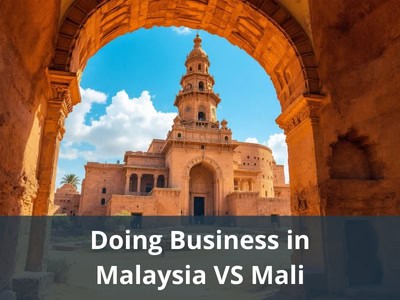Ready to Expand into India? Choose 3E Accounting Today!
Stay Secure, Stay Successful With 3E Accounting Services

Here’s a quick overview of the key differences for easy reference.
| Factor | Malaysia | Mali |
|---|---|---|
| Business Environment | Stable government, strong legal framework | Developing, politically fragile |
| Corporate Tax Rate | 24% | 30% |
| Capital Gains Tax | Yes, varies by asset type | Yes, on some investment income |
| Ease of Incorporation | Fast and digital | Slower, more manual process |
| Business Costs | Low operational and living costs | Low, but infrastructure is limiting |
| Market Access | ASEAN, China, US, global trade partners | ECOWAS, West African markets |

Selecting the right partner is crucial when it comes to starting a business in Malaysia. At 3E Accounting, we offer a comprehensive range of solutions designed to simplify the entire process of company incorporation in Malaysia. From ensuring compliance with local regulations to providing expert guidance tailored to your specific needs, we make the journey seamless.
For entrepreneurs looking to navigate Malaysia company registration or explore company setup in Malaysia, our team provides unmatched expertise and support. Additionally, our company incorporation services are tailored to help you succeed in the competitive business environment.
With a deep understanding of the region’s business landscape, we also provide resources for setting up businesses in Malaysia, ensuring that every step is clear and efficient. Whether you need assistance with corporate secretarial or company secretary services, we are here to help.
To explore our services or discuss your business needs, contact 3E Accounting. With our strong presence in Malaysia and a proven track record, we are your trusted partner for success in Asia.
Stay Secure, Stay Successful With 3E Accounting Services
Answer: Yes, Malaysia provides a stable political climate, better infrastructure, and streamlined procedures, making it a top choice for starting a business in Malaysia.
Answer: Mali imposes a 30% corporate tax, while Malaysia offers a more attractive 24% rate, with various tax incentives available during Malaysia company registration.
Answer: Malaysia supports fast and digital registration through company incorporation in Malaysia, while Mali’s process is slower and more manual.
Answer: Malaysia has low operational and living costs and reliable infrastructure, which makes setting up businesses in Malaysia efficient and cost-effective.
Answer: Malaysia has strong trade connections with ASEAN, China, and the US. With company incorporation services, businesses gain quick access to global supply chains.
Answer: Yes, foreign ownership is allowed in most sectors, and you can engage company setup in Malaysia services for end-to-end support.
Answer: Businesses must appoint a qualified secretary. Trusted company secretary services help ensure compliance with Malaysian regulations.
Answer: The Companies Commission of Malaysia (SSM) oversees all company registrations and ensures compliance with corporate laws.
Abigail Yu
Author
Abigail Yu oversees executive leadership at 3E Accounting Group, leading operations, IT solutions, public relations, and digital marketing to drive business success. She holds an honors degree in Communication and New Media from the National University of Singapore and is highly skilled in crisis management, financial communication, and corporate communications.

